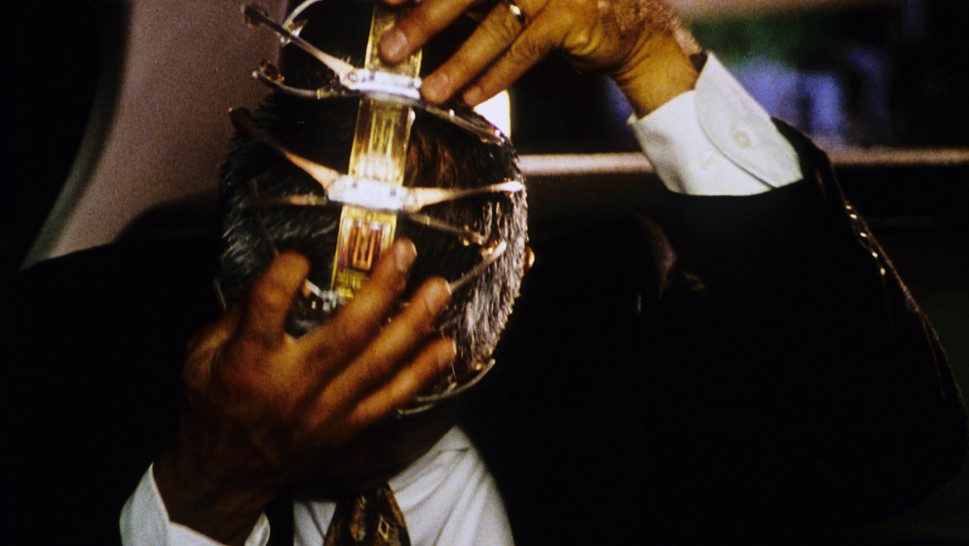
Strange Days
With Ralph Fiennes, Angela Bassett, Juliette Lewis.
US, 1995, 35mm, color, 145 min.
Print source: 20th Century Fox
Kathryn Bigelow, perhaps the most successful filmmaker with a master’s degree in film theory, once remarked that a double bill of Mean Streets and The Wild Bunch “took all my semiotic Lacanian deconstructivist saturation and torqued it.” As film theorists such as Steven Shaviro have noted, Strange Days takes Laura Mulvey-derived apparatus theory and “torques” it via virtual reality, providing the sort of jaw-dropping, ethically conscious sequences of self-referential brutality that define Bigelow’s work—by means of an intersectional protagonist who, according to Bigelow, was conceived to connect “female victimization and racial oppression.” By wearily imagining the potentially sinister identifications possible via virtual reality, Bigelow (and writer James Cameron, in a moment before the naïve anti-colonialist fantasy mythmaking of Avatar) matches the voyeuristic potential of the cinema with the type of mobile, private, multimedia consumption of viral violence we now know all too well.






















